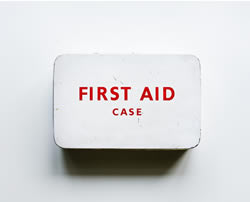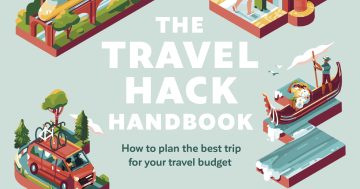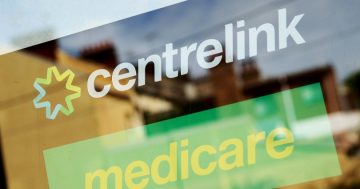Mia Taylor* says establishing an emergency savings fund is vital, but there are seven things you should never skimp on.
 Establishing an emergency savings account to cover life’s unexpected expenses is an important, if not critical, part of a solid financial foundation.
Establishing an emergency savings account to cover life’s unexpected expenses is an important, if not critical, part of a solid financial foundation.
The prevailing wisdom among personal finance experts has long been that one should have at least three to six months of living expenses set aside.
While reducing household spending is a popular way to reach that goal (and a good habit in general), experts also say there are certain areas you should never cut back on in pursuit of accumulating savings — because doing so will likely cost you more in the long run.
Maintaining your health is the foundation upon which everything else is built.
To that end, experts suggest not cutting corners in this area simply to put more money into your emergency fund.
“Health insurance is especially easy to neglect, particularly when you’re young, because you’re less likely to think about health issues,” said Scott Goldberg, President of Bankers Life.
“If you’re saving for a well-deserved trip, however, you won’t be able to enjoy it if you’re not healthy or need to pay for unexpected health expenses.”
While health insurance is expensive, it can also end up saving your livelihood in the long run, said Goldberg.
“Every individual and every family needs to determine their individual balance between building up their savings and spending money on health insurance,” continued Goldberg.
“Do your research on what option is best for you and your loved ones, your medical history, along with your income and living expenses.”
Bottom line, says Goldberg: Building up your savings is important, but don’t sacrifice your physical or mental wellbeing by scrimping on health insurance.
It isn’t worth it.
Credit card payments
You may be laser-focused on building a healthy emergency fund, but don’t forget to continue paying down your credit cards.
While making at least the minimum payment will keep your credit score from suffering, most experts say you should be trying to pay them off as aggressively as possible, even if that means it will take longer to build your e-fund.
“While on one side, building savings will prevent you from sliding further into debt, many people will revert to making minimum payments on consumer debt like credit cards that are accruing at a rate of 15 per cent and up,” said Emily Boothroyd, a private wealth advisor.
“It’s a good idea to build savings, but it’s more important to pay down debt that’s accruing at rates that exceed what any investment is doing.”
Vehicle purchases, maintenance, and insurance
From the initial purchase to the insurance and maintenance, it’s important to make wise choices about automobile expenditures and not cut corners in critical areas.
That doesn’t mean you should go out and buy a Land Rover or a Volvo just because they’re of higher quality than, say, a Hyundai.
But it does mean focusing on reliability, and not just picking up the cheapest clunker you can find.
Similarly, while it’s a good idea to shop around and try to save money on your car insurance, it can be tempting to opt for a policy that covers only the bare minimum.
That’s not the wisest approach, says Jacob Dayan, CEO and co-founder of Finance Pal.
“This amount of coverage will not be nearly enough to cover the cost of a major accident, and it will cost you far more than the additional dollars on your premium,” said Dayan.
“In the unfortunate circumstance that you need it, you’ll be thankful that you didn’t skimp on coverage.”
Finally, don’t let your vehicle’s maintenance schedule slide, either.
Skipping oil changes and tyre rotations that keep your car in good working order just to put an extra $40 in your emergency savings is simply foolish.
Retirement savings
Retirement can seem like a distant horizon, intangible at best, making it easy to justify cutting back on such things as super contributions.
“The amount of compound interest lost by stopping the inflow to your retirement can far outweigh the money needed immediately,” explained Watson.
Scaling back on retirement contributions for just a short time can help boost your emergency fund, Watson said.
But if you take this approach, he added, be sure to set a clear timeline for when you plan to bump those contributions back up.
Essential home repairs
Owning a house is an investment, so you want to take care of it like one, says Holly Peterson, owner of Elite Retirement Strategies.
This means not ignoring small issues, as they can often grow into bigger, more expensive problems.
“Water can do a lot of damage to a house, so you should make sure that your gutters are working properly and not clogged and always replace roof tiles that are missing or damaged,” said Peterson.
“If you don’t take care of these properly, it could lead to water getting into your house causing mould and rot within your walls.”
Eating healthy
One last area to consider brings the discussion full circle: allotting enough money each month to fund a healthy diet is essential to maintaining good health.
“Eating healthy is an area of your life you should never sacrifice to speed up savings,” says Jacqueline Gilchrist, creator of Mom Money Map.
“While it’s tempting to constantly purchase cheaper food … or filler food like bread, this will also lead to health issues, which will most likely cost you more in the long run.”
Eating healthy doesn’t have to bust your budget or your savings goals for that matter; it can actually be less expensive.
For example, preparing meals at home, where you’re in control of the ingredients, can be both healthier and cheaper than eating out.
And opting for meatless Mondays or a vegetable-centred diet can improve your health and trim costs at the same time.
* Mia Taylor is a journalist whose website is www.miataylorwriter.com.
This article first appeared at www.thesimpledollar.com.











